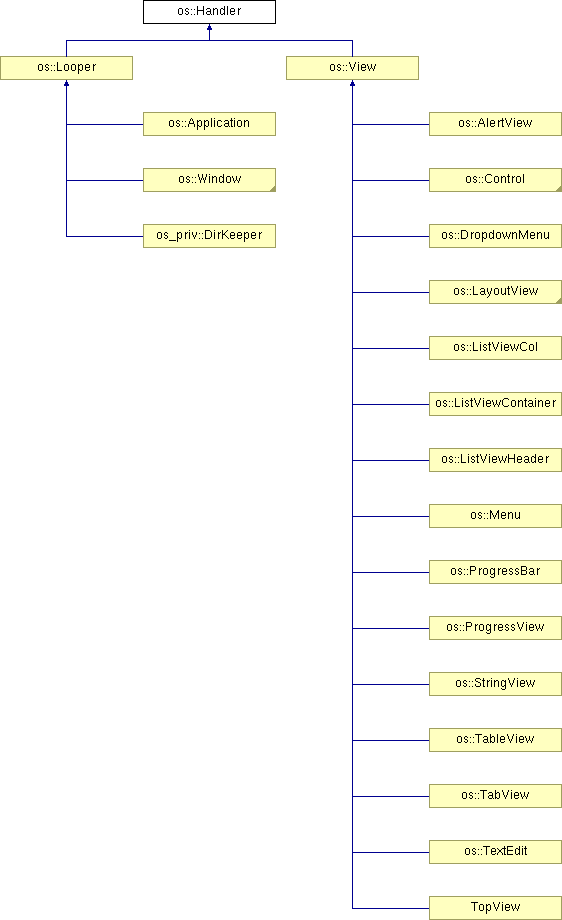|
|
-
Description:
-
Overload this member to dispatch messages sendt to this handler. When a looper receives a message for one of it's handlers it will call the taget handlers HandleMessage() to allow the handler to dispatch the message.
The message passed in pcMessage is also available through os::Looper::GetCurrentMessage() and os::Looper::DetachCurrentMessage() until this member returns. This is normally not very usefull for HandleMessage() itself but it can be convinient for other members called from HandleMessage() in case they need data from the message that was not passed on from HandleMessage().
The looper will be locked when this member is called. The default implementation of this member will pass the message on to the next handler if one was set with SetNextHandler().
-
Note:
-
Never do any lenthy operations in any hook members that are called from the looper thread if the looper is involved with the GUI (for example if the looper is a os::Window). The looper will not be able to dispatch messages until the hook returns so spending a long time in this members will make the GUI feel unresponsive.
-
Parameters:
-
-
See also:
-
os::Looper::DispatchMessage(), os::Looper::DetachCurrentMessage()
-
Author:
-
Kurt Skauen ([email protected])
Reimplemented in os_priv::DirKeeper, os::Application, os::DirectoryView, os::DropdownMenu, os::FileRequester, os::Alert, os::ProgressRequester, and os::Spinner. |


 1.2.9.1 written by Dimitri van Heesch,
© 1997-2001
1.2.9.1 written by Dimitri van Heesch,
© 1997-2001